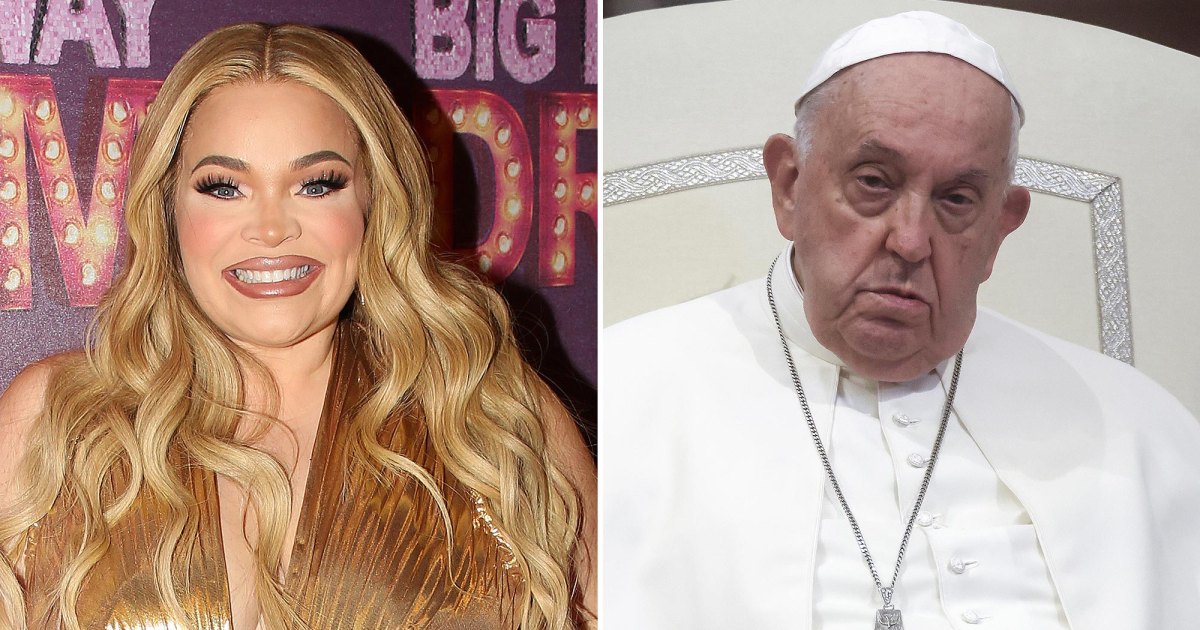Trisha Paytas Responds to Controversial Rumors About Her Unborn Child and Pope Francis
Social media influencer Trisha Paytas has publicly addressed bizarre rumors linking her unborn child to Pope Francis, sparking viral discussions across platforms. The 35-year-old content creator, who announced her pregnancy in September 2023, took to YouTube and Twitter this week to clarify the unexpected controversy that merged religious conspiracy theories with celebrity gossip.
The Origins of the Unusual Speculation
The rumors began circulating on fringe online forums before spreading to mainstream social media. Some conspiracy theorists suggested Paytas’ pregnancy timing aligned with alleged prophecies about the Catholic Church, while others fabricated connections between her due date and significant religious dates. Paytas, known for her provocative online persona, became an unlikely figure in these discussions.
“At first I thought it was just another weird internet joke,” Paytas stated in her 27-minute YouTube response video. “But when major news outlets started picking it up, I realized this had gone way beyond trolling.”
Analyzing the Viral Claims
Fact-checking organizations have identified three primary false claims driving the controversy:
- A fabricated quote attributed to Pope Francis about “digital age prophets”
- Misinformation about Paytas’ due date coinciding with a historic papal event
- Altered screenshots suggesting Paytas hinted at religious connections
Social media analytics firm BuzzSumo reports a 420% increase in engagement around Paytas-related content since the rumors emerged, with religious conspiracy topics showing particular growth. “This reflects a troubling trend where celebrity news and conspiracy theories increasingly intersect,” notes digital culture researcher Dr. Elena Martinez.
Paytas’ Emotional Response and Fan Reactions
In her characteristic candid style, Paytas alternated between humor and frustration while addressing the rumors. “I’m just trying to have a healthy pregnancy, and suddenly people think my baby’s the second coming?” she quipped, before growing serious: “These theories aren’t harmless when they start affecting real people.”
Fan reactions have been divided:
- Supporters applaud her for addressing the rumors directly
- Critics argue she’s capitalizing on the controversy for attention
- Neutral observers express concern about online misinformation trends
The Broader Implications of Celebrity Conspiracy Culture
This incident highlights growing concerns about how quickly unverified claims spread in digital spaces. According to Pew Research Center, 64% of Americans now encounter obviously false information online weekly – up from 51% in 2020. Celebrities increasingly find themselves unwilling participants in these viral narratives.
“Public figures now face a double bind,” explains media psychologist Dr. Raymond Choi. “If they ignore rumors, they spread. If they respond, they risk amplifying them. There’s no perfect solution in our hyper-connected world.”
What’s Next for Paytas and the Online Community?
As Paytas prepares for motherhood, she’s vowed to be more selective about addressing online speculation. Meanwhile, the incident has sparked broader conversations about:
- Platform accountability for curbing misinformation
- The ethics of celebrity coverage in digital media
- Psychological impacts of online conspiracy theories
For readers interested in responsible social media engagement, consider following verified fact-checking organizations and practicing critical thinking when encountering sensational claims. As this case demonstrates, even seemingly absurd rumors can gain alarming traction in today’s digital landscape.
See more The Buzz Live

